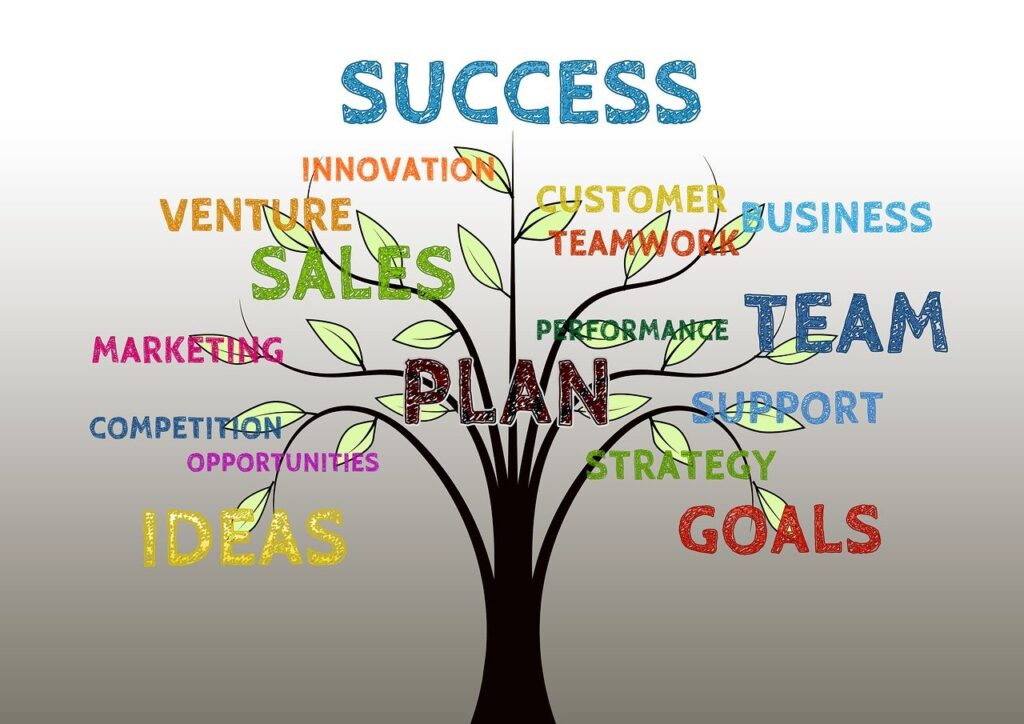In today’s business environment, it’s important for sales professionals, whether a sales manager, a sales development rep, or other sales professional, to adapt and update their skills in order to remain competitive. The sales industry has undergone significant transformations in recent years, driven by factors such as technological advancements, shifting customer expectations, and new business models. As we approach a new year, it is essential for salespeople to equip themselves with the right set of skills to stay ahead in the game. Let’s explore the top sales skills that are expected to be in high demand in the coming years.
Platforms and Schools To Learn Sales Skills

Sales Training Courses from Coursera

Sales Training Courses from edX
Sales Enablement, Sales Management, Enterprise Sales

Sales Training Courses from Udemy
B2B Sales, Sales Masterclass, Business Development
Emotional Intelligence in Sales
Emotional intelligence, or the ability to identify, understand, and manage one’s own emotions and those of others, is a critical skill for sales professionals. In the world of sales, success often hinges on the ability to build strong relationships with customers. By displaying empathy and understanding customers’ needs and emotions, salespeople can establish a genuine connection that fosters trust and loyalty.
There are numerous examples of sales professionals who have leveraged emotional intelligence to achieve success. For instance, a salesperson who can sense a customer’s frustration and address their concerns calmly and effectively is more likely to close the deal than someone who is indifferent or dismissive. Similarly, a sales rep who can adapt their communication style to match the customer’s preferences can create a more comfortable and productive sales interaction.
To improve emotional intelligence in sales, consider the following tips:
- Practice active listening to better understand the customer’s perspective and needs.
- Develop self-awareness to recognize and manage your own emotions during sales interactions.
- Pay attention to nonverbal cues and body language to gain insight into the customer’s feelings.
- Strive to be empathetic and understanding, even when dealing with difficult customers or situations.

Technological Proficiency in Sales
As the business landscape continues to evolve, technology plays an increasingly significant role in the sales process. Sales professionals must stay up-to-date with the latest tools and platforms to remain competitive and streamline their operations. Some of the key technology tools expected to be essential for sales success include CRM systems, sales automation tools, and video conferencing and virtual presentations.
CRM systems, such as Salesforce, help salespeople manage customer relationships, track leads, and analyze data to make informed decisions. Sales automation tools, on the other hand, can save time and effort by automating repetitive tasks such as sending follow-up emails and scheduling appointments. Video conferencing and virtual presentations have become increasingly important, especially in the wake of remote work and the need for engaging digital communication.
Examples of effective use of technology tools in sales include leveraging CRM data to personalize sales pitches, automating routine tasks to free up time for more strategic pursuits, and delivering compelling virtual presentations to engage customers and close deals. To stay updated on relevant technology, sales professionals should consider the following resources:
- Online tutorials and courses to learn new software and tools
- Industry blogs and publications to stay informed on the latest trends and best practices
- Networking with peers and attending industry events to exchange knowledge and insights
- Participating in online forums and communities to seek advice and share experiences
The Importance of Active Listening Skills in Sales
Active listening is the process of fully concentrating, understanding, responding to, and remembering what is being said during a conversation. This skill is critical for sales success as it enables salespeople to better understand their customers’ needs, preferences, and concerns, ultimately leading to more effective sales interactions and stronger customer relationships.
To practice active listening in sales conversations, consider implementing the following techniques:
- Maintain eye contact to show attentiveness and build trust.
- Ask open-ended questions to encourage the customer to share more information.
- Paraphrase or summarize the customer’s statements to ensure understanding and show that you are paying attention.
- Offer verbal and nonverbal cues, such as nodding or saying “I see,” to indicate that you are engaged in the conversation.
There are numerous examples of successful outcomes resulting from active listening in sales. For instance, a salesperson who actively listens to a customer’s concerns may be able to address those concerns more effectively, leading to increased customer satisfaction and a higher likelihood of closing the deal. Additionally, active listening can help identify upselling or cross-selling opportunities that may have otherwise gone unnoticed.
Common pitfalls to avoid in active listening include interrupting the speaker, focusing on formulating a response instead of truly listening, and allowing distractions to divert your attention. By being mindful of these potential obstacles, sales professionals can hone their active listening skills and improve their overall sales performance.

Adaptability and Resilience Skills in Sales
The ability to adapt to changing situations and bounce back from setbacks is crucial for success in the sales industry. As sales professionals navigate an ever-evolving business landscape, they must be able to cope with challenges, learn from their experiences, and remain persistent in the face of obstacles.
Some examples of adaptability and resilience in action include adjusting sales strategies in response to market shifts, persisting through multiple rejections to ultimately close a deal, and embracing new technology tools to improve efficiency and effectiveness in the sales process.
To develop adaptability and resilience in sales, consider implementing the following strategies:
- Embrace change: Stay open to new ideas, strategies, and technologies that can enhance your sales performance. Be willing to adapt your approach as needed to achieve your goals.
- Learn from failures and setbacks: Reflect on your experiences, both positive and negative, to identify areas for improvement and growth. Use this insight to become a better sales professional.
- Be open to feedback: Seek constructive criticism from peers, managers, and customers to gain valuable insights into your strengths and areas for improvement. Use this feedback to make informed decisions about your sales approach.
Storytelling and Persuasion Skills in Sales
Storytelling is a powerful tool in sales, as it can captivate customers’ attention, evoke emotions, and make complex information more digestible. When used effectively, storytelling can significantly enhance the persuasiveness of a sales pitch and help forge a deeper connection with customers.
Examples of effective storytelling in the sales process include sharing success stories from satisfied customers, crafting a narrative around the benefits and features of a product or service, or presenting case studies that demonstrate the real-world impact of a solution.
To craft compelling stories that resonate with customers, consider the following tips:
- Identify the key message you want to convey and build your story around it.
- Make your story relatable by incorporating elements that appeal to your customer’s emotions, values, and experiences.
- Use descriptive language and vivid imagery to make your story more engaging and memorable.
- Structure your story with a clear beginning, middle, and end, ensuring a logical flow and progression of ideas.
Lastly, it is essential to maintain authenticity and credibility in your storytelling. Avoid exaggeration or fabrication, as it can damage your credibility and undermine trust with your customers. Instead, focus on presenting accurate, relevant, and compelling stories that truly showcase the value of your product or service.

Data-Driven Decision Making Skills in Sales
In today’s data-driven world, sales professionals must be well-versed in analyzing and interpreting data to make informed decisions. As the significance of data in sales continues to grow, salespeople need to develop data literacy skills to stay competitive and optimize their sales strategies.
Examples of using data to make informed decisions in the sales process include leveraging customer insights to tailor sales pitches, analyzing market trends to identify new opportunities, and using sales performance metrics to determine areas for improvement and growth.
To become proficient in data-driven decision making, sales professionals can utilize various tools and resources, such as:
- CRM systems that provide customer data and analytics capabilities
- Business intelligence tools that help visualize and analyze sales data
- Online courses and tutorials focused on data analytics and data-driven decision making
- Industry blogs and publications that share best practices and insights on leveraging data in sales
It is important to not only have access to the right data but also understand and interpret it correctly. Misinterpretation of data can lead to misguided decisions and negatively impact sales performance. Therefore, sales professionals should invest in developing their data literacy skills to ensure accurate and effective data-driven decision making.
Conclusion
The sales skills that will be the most useful for anyone who is in a position of selling include emotional intelligence, technological proficiency, active listening, adaptability and resilience, storytelling and persuasion, and data-driven decision making. By investing in developing these skills, sales professionals can ensure their future success in the industry and stay ahead of the competition.
It is important to remember that professional development and staying updated on the latest sales skills is an ongoing process. As the sales landscape continues to evolve, so should your skillset. By continuously learning and adapting, you can unlock new opportunities and achieve your career goals. Pathways to Advancement is here to support you in your educational and professional journey, providing expert advice and resources to help you succeed in the ever-changing world of sales.

